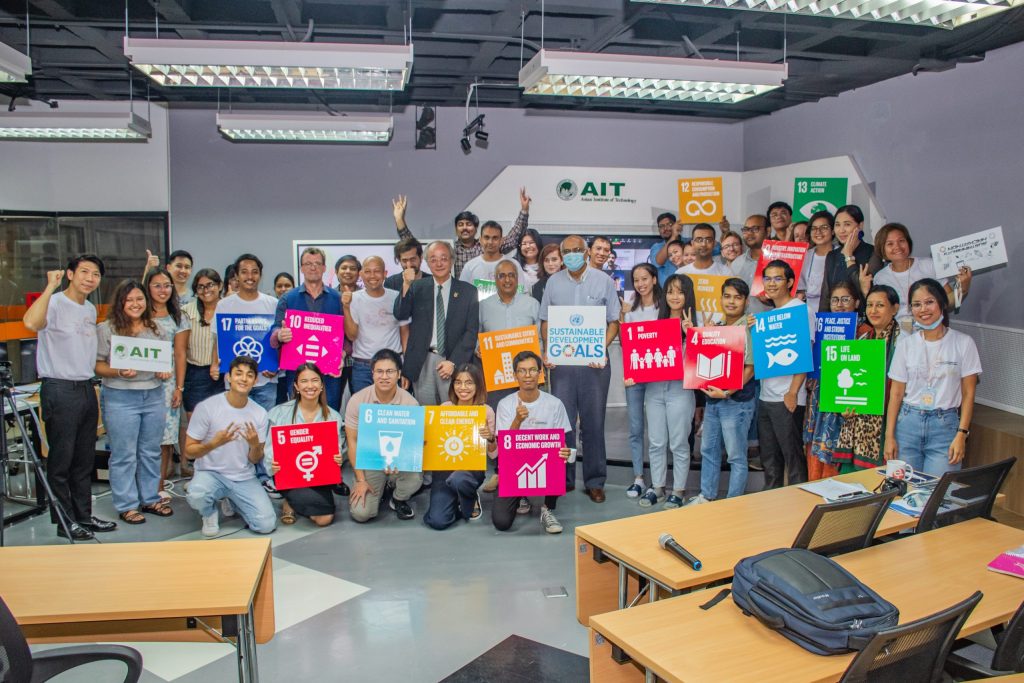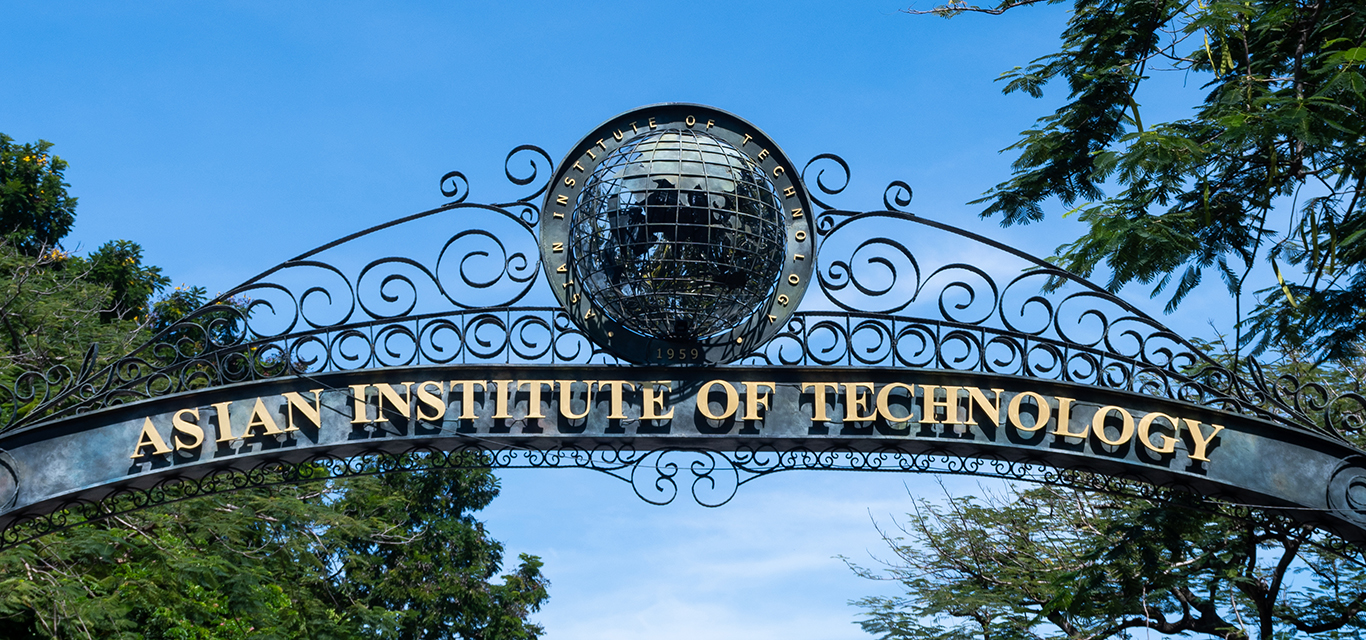CLIMATE CHANGE
AIT conducts cutting-edge and solution-oriented research in climate change in an interdisciplinary setting. The research addresses the issues of how human activities and changing climate affect each other and explores the technology and policy options needed for low-carbon development and improving climate resilience for sustainability. Through an interdisciplinary approach taken, AIT research examines greenhouse gas emissions and the impacts of climate change from social, environmental, and technological perceptive. The climate change research theme aims to help determine and support the development of effective solutions with appropriate mitigation and adaptation strategies including economic, social, and ecological approaches that are also complementary to other challenges such as Sustainable Development Goals.
Sub-themes
- Transition toward Net Zero Emissions
- Climate Change and Ecosystem
- Enabling Technology and Innovations
- Societal Dimension of Climate Change
- Cities and Climate Change
- Climate Change Adaptation and Resilience
For details on sub-themes, please see Link.
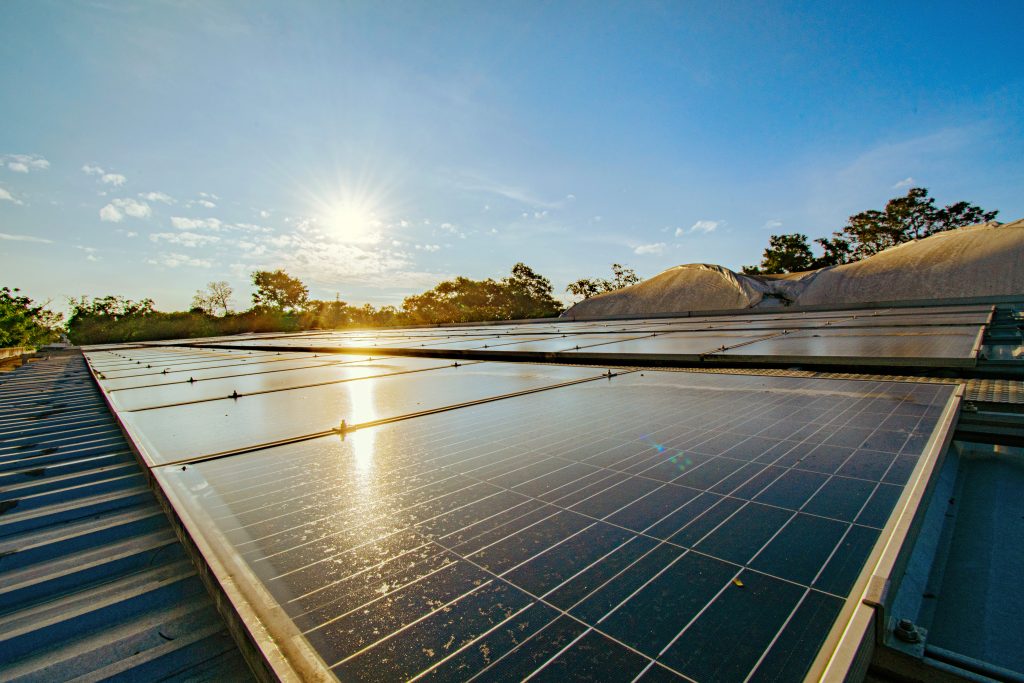


SMART COMMUNITIES
Due to rapid urbanization, urban-rural disparity, growing environmental footprint, and inequality, the communities are facings economic, environmental, and social challenges. However, they are also trying to leap-frog through grasping the new opportunities presented by smart technologies, the digital revolution, and the policy innovation that are rapidly emerging to issues facing them. Especially, experiences of smart urban and rural communities are supported by a wide range of information and communication technology (ICT) systems that provide advanced and innovative services to create a positive impact on society that spans all sectors. AIT’s research focuses on the transition to smart communities by leveraging innovative technologies and practices in delivering better economic, social, and environmental outcomes for the community. Within the changing context of smart communities from infrastructure supply-oriented to improving citizens’ quality of life, the research is conducted in a multi- and interdisciplinary way— integrating the different dimensions of development such as technology, environment, socio-economic, and governance.
Sub-themes
- Emerging Technologies for Inclusive Development of Rural and Urban communities
- Ecosystem-based Environmental Solutions for Communities
- Digital Transformation for Economy and Business
For details on sub-themes, please see Link.
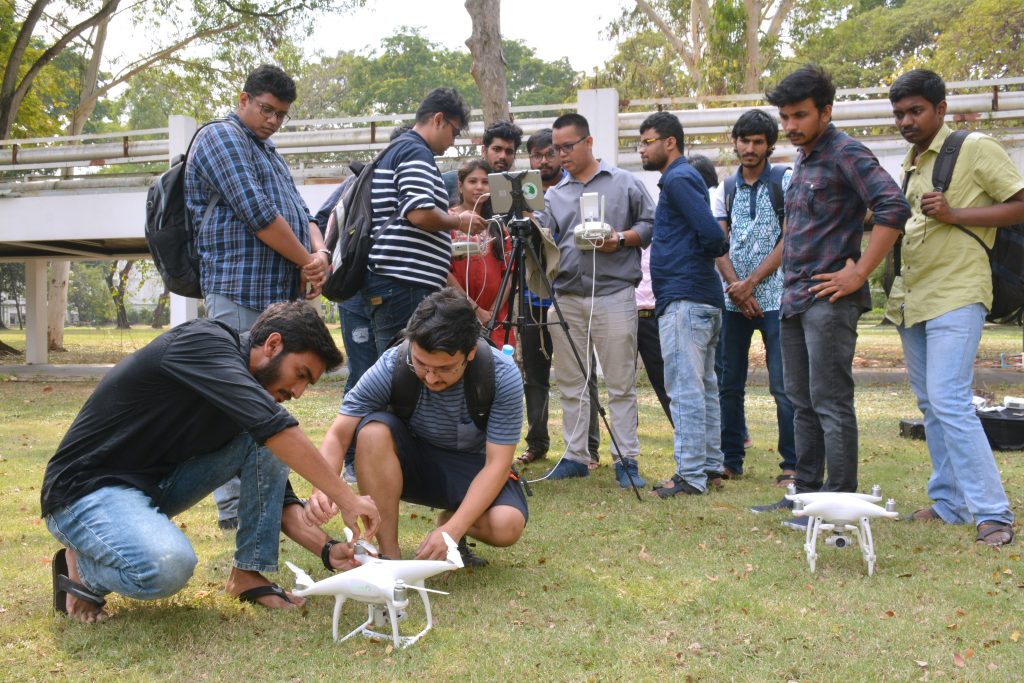


FOOD-ENERGY-WATER
Water, Energy, and Food are vital and critically important to human societies, and their economic and livelihood activities. They are inextricably interrelated to each other and with other societal goals. Global challenges of climate change, ecosystem degradation, intensive economic growth, population growth, and urbanization are increasingly threatening the security and services of WEF systems. With the growing demands of WEF resources driven by these challenges, the social and environmental implications are increasing with unpredictable impacts on livelihoods and the environment. In order to reduce the negative impacts of and across the WEF nexus, effective solutions with integrated low-carbon and multi-sectoral adaptation strategies and policies are needed urgently. To achieve long-term water, energy, and water security, there is also a need to step up the efforts dealing with technology development in addressing the main environmental issues.
The research encompasses the field of each domain of WEF resources, and the nexus approach that considers all three different dimensions recognizing the interdependencies of different resource uses sustainably. The issues covered in relation to WEF sectors include efficiency, equity, resilience, and sustainability, as well as the key questions required to enhance the adoption of technologies and policies to promote the strong synergies of food security, energy, and water investments.
Sub-themes
- Food Security
- Sustainable Energy
- Water Management
- Food-Energy-Water Nexus
For more details on sub-themes, please see Link.
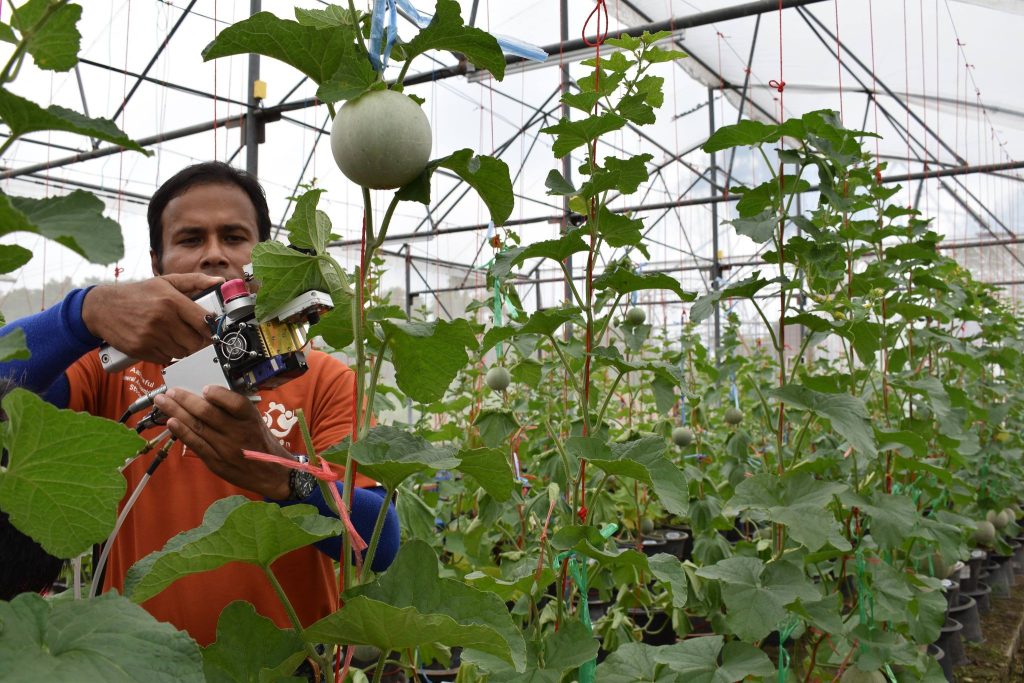

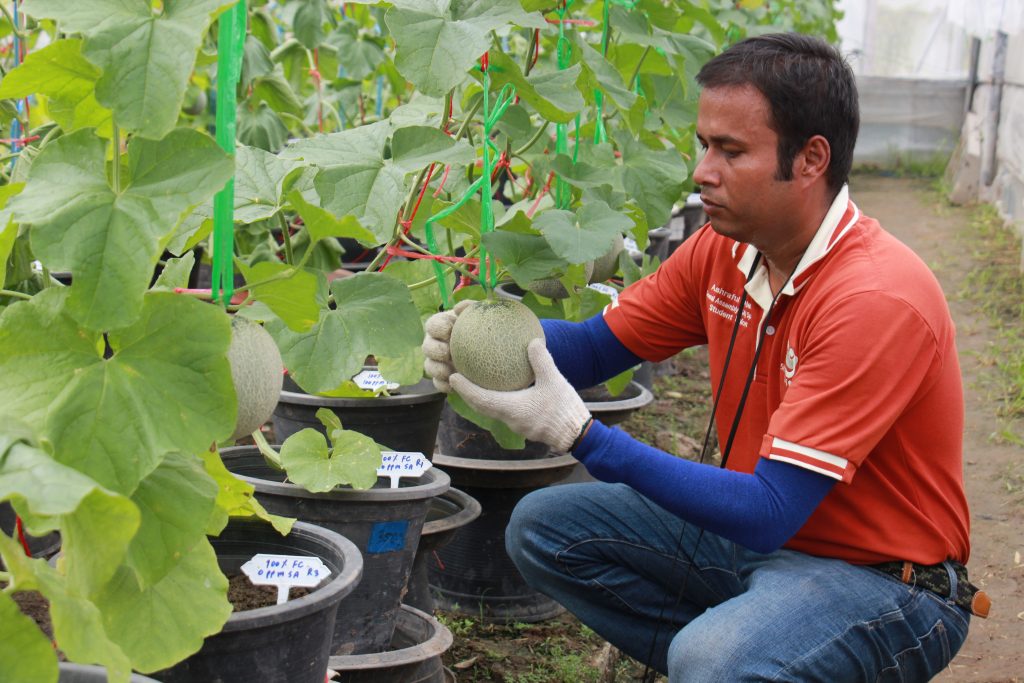
INFRASTRUCTURE
Infrastructure systems play a critical role in social and economic activities, and function as critical lifelines for connecting communities, industries, markets, goods, and services as well as for efficient governance. Infrastructure forms the backbone of any social and political development of communities and countries. Hence, investments in infrastructure are increasing rapidly, especially in developing countries to meet the increasing demand for reliable and efficient transportation, power, telecommunication, and water, often termed as the basic services essential for human and social well-being. However, across the world, millions of people are still facing severe absence and shortages of such systems.
Unreliable power grids, inadequate water supply, and sanitation systems, and poor transportation networks are still a huge plague in many developing nations. The improvement and resilience of infrastructure systems and services have become vital in the path toward sustainable development and for resilient and prosperous societies. In responding to the future trends and challenges with the rapidly growing communities, it is essential to ensure that the infrastructure systems and facilities are designed with sustainable, resilient, and inclusive approaches. With technology expanding at the rate, it is now, infrastructures need to be flexible to adapt to technological improvements and incorporate better solutions as they become available.
AIT’s infrastructure theme represents the physical components of interrelated systems providing commodities and services essential to enable, sustain, or enhance societal living conditions. That includes transportation systems and networks including roads, bridges, and mass transit; housings, buildings, and facilities; electrical grids, ICTs networks including telecommunications.
Sub-themes
- Planning and Management
- Water Infrastructure
- Digital (ICT) Infrastructure
For details on sub-themes, please see Link.

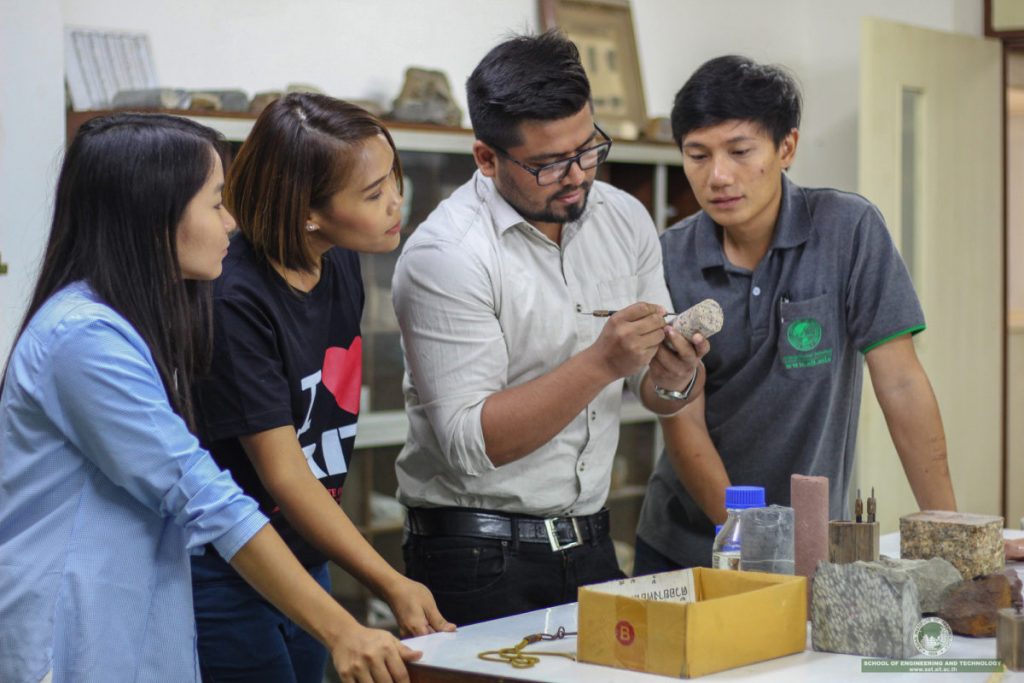

TECHNOLOGY, POLICY, AND SOCIETY
The future of economic prosperity and inclusive societal transformation depends on how we address the key societal issues benefiting from emerging innovative technologies and policies. The application of digital technologies, bio-process technologies, environmental technologies, energy technologies, and nanotechnologies holds the greatest potential for competitiveness and sustainable growth in the countries it can be used appropriately. Despite the major technological advancements, the complexity of technologies and the implications they have for many aspects of social life still need to be fully understood and issues of disparity, division, and inequality remain. The understanding of the ongoing digital transformation and consequences of these new and emerging technologies is important to improve individual and societal outcomes, particularly in the face of increasing societal pressures.
AIT’s Technology-Policy-Society research theme is cutting-edge research focused on technology development and application, policy innovation, and development and societal issues including the nexus between them. The theme recognizes the growing need of bridging the gap between technology and policymaking which requires an understanding of the policy tools required for modern society and modern technologies. In view of this, the research explores how social science and technology interact with everything from environmental issues to public policies, and a better understanding of the impacts of emerging technologies (artificial intelligence, internet of things, big data, etc.) from societal and policy dimensions while moving forward to inclusive and sustainable development.
Sub-themes
- Digital Technology Solutions and Societal Transformation
- Innovative Policies for Coping with Rapid Transformation taking place in the Region
- ICTs and the Environmental Management
- Equitable Societal Change and Inclusive Development
- Gender and Forced Displacement
For details on sub-themes, please see Link.
